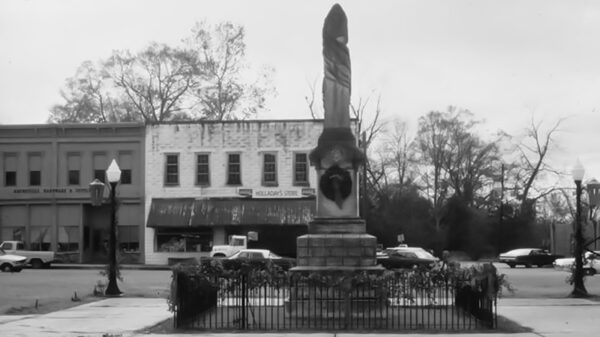|
Getting your Trinity Audio player ready...
|
On Wednesday, reports began to circulate of anonymous racist text messages being sent to Black students at campuses across the country. Students at the University of Alabama and other Alabama schools were among those who reported receiving the messages, as did students at Clemson University in South Carolina, Georgia residents, women in Detroit, and others.
Various individuals shared screenshots of the racist texts to social media. Each message followed a nearly identical format, referencing the recipients by name before telling them they have been “selected to pick cotton at the nearest plantation.”
“Be ready at 1:00 p.m. SHARP with your belongings,” read one message shared by Arleta McCall, the mother of a UA student. “Our Executive Slaves will come get you in a Brown Van, be prepared to be searched down once you’ve enter the plantation. You are in Plantation Group C.”
The messages came from various numbers which appear to be linked to TextNow, a free text messaging service that allows users to create fake “burner” phone numbers. It is unclear how the recipients’ names and numbers were collected.
Multiple students, including McCall’s daughter, decided not to attend classes on Wednesday out of fear for their own safety after receiving the texts.
{{CODE1}}
Another UA student, Hailey Welch, received a similar text and also reported being harassed by two men wearing MAGA hats on campus on Wednesday following President-elect Trump’s official victory.
“They started yelling at me nd calling me racial slurs and said go back where I came from, even though I was born here and I’m American,” Welch told the university’s student paper. Welch also said that the men appeared to be fellow students at the university.
Genesis Russell, a freshman at UA and member of the university’s Black Student Union, called the racist messages “dehumanizing” and explained how she felt they were connected to Trump’s electoral victory.
“It’s just very disgusting to me, especially with knowing how the election played out, just knowing that there are people who saw the election results and thought, ‘OK, now is the time to do something like this,'” Russell said.
McCall expressed a similar view, expressing that the timing of the racist texts appeared to be related to Trump’s victory. McCall also told the Crimson White she believed that the racist insults made by a comedian at a recent Trump rally sent a message to the President-elect’s supporters that racist and derogatory speech was acceptable.
The Southern Poverty Law Center, a legal advocacy nonprofit focused on protecting civil rights in the South, condemned the messages in an official press release on Thursday.
“The text sent to young Black people, including students at Alabama State University and the University of Alabama, is a public spectacle of hatred and racism that makes a mockery of our civil rights history. Hate speech has no place in the South or in our nation,” said Margaret Huang, SPLC president and CEO. “Leaders at all levels must condemn anti-Black racism, in any form, whenever we see it — and we must follow our words with actions that advance racial justice and build an inclusive democracy where every person feels safe and welcome in their community.”
The University of Alabama’s Chapter of the NAACP also released a statement denouncing the racist messages. “Such hateful actions have no place on any campus and stand in direct opposition to the values of inclusivity, respect, and community that we value,” reads the chapter’s press release. The statement also calls on the university’s administration “to conduct a thorough investigation and to hold those responsible accountable.”
Deidre Simmons, the University of Alabama’s director of communications, commented on the incident.
“It is our understanding that individuals across the country have received these disgusting messages,” said Simmons. “This has been reported to authorities and we’re asking anyone who may have information regarding these messages to report it to the appropriate authorities. UA students who have seen or received such messages are also encouraged to contact the Office of Student Care and Well-Being for any additional support that may be needed.”
This is not the first instance of organized hate speech to take place on the University of Alabama’s campus in recent years.
In 2023, nearly two dozen antisemitic chalkings were drawn across UA’s campus. Those messages read “#YEisRight”, referencing musician Kanye West or “Ye,” who faced heavy criticism over antisemitic comments in 2022. On far-right commentator and conspiracy theorist Alex Jones’s InfoWars program, West proclaimed to “love Nazis” and “see good things about Hitler.” Some of the chalkings also featured the date Jan. 27 in reference to Holocaust Remembrance Day and the slogan “America First” which has been associated with Trump and the MAGA movement.
In July, the University of Alabama shut down its Division of Diversity, Equity, and Inclusion in compliance with SB129 — the bill, signed into law by Gov. Kay Ivey in March, effectively banned diversity, equity, and inclusion programs and the teaching of “divisive concepts” at public colleges in the state.























































